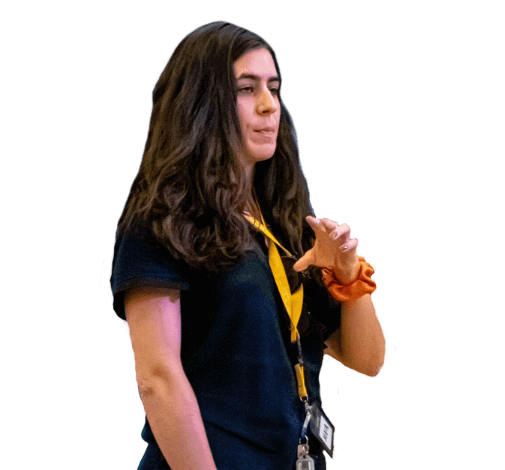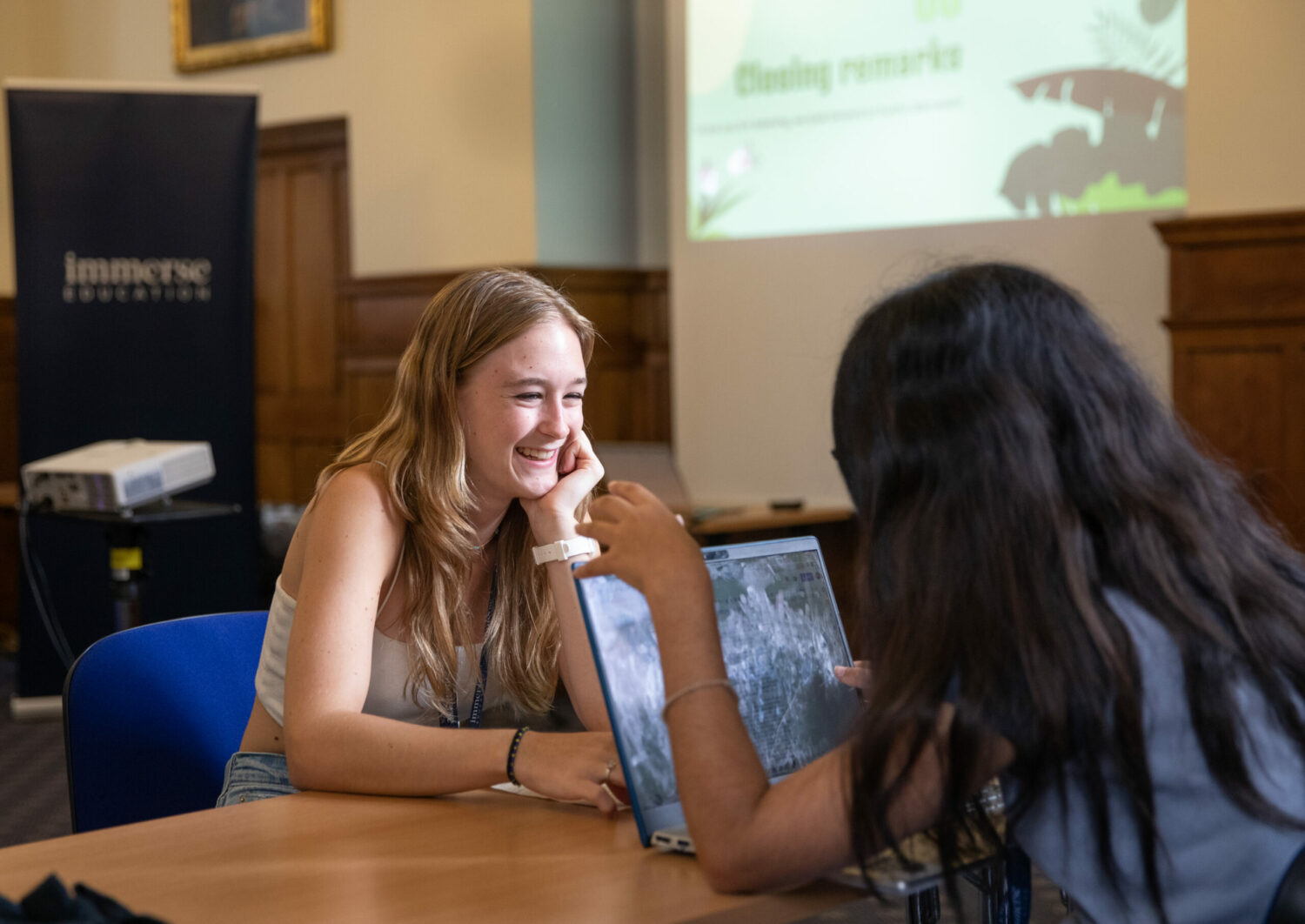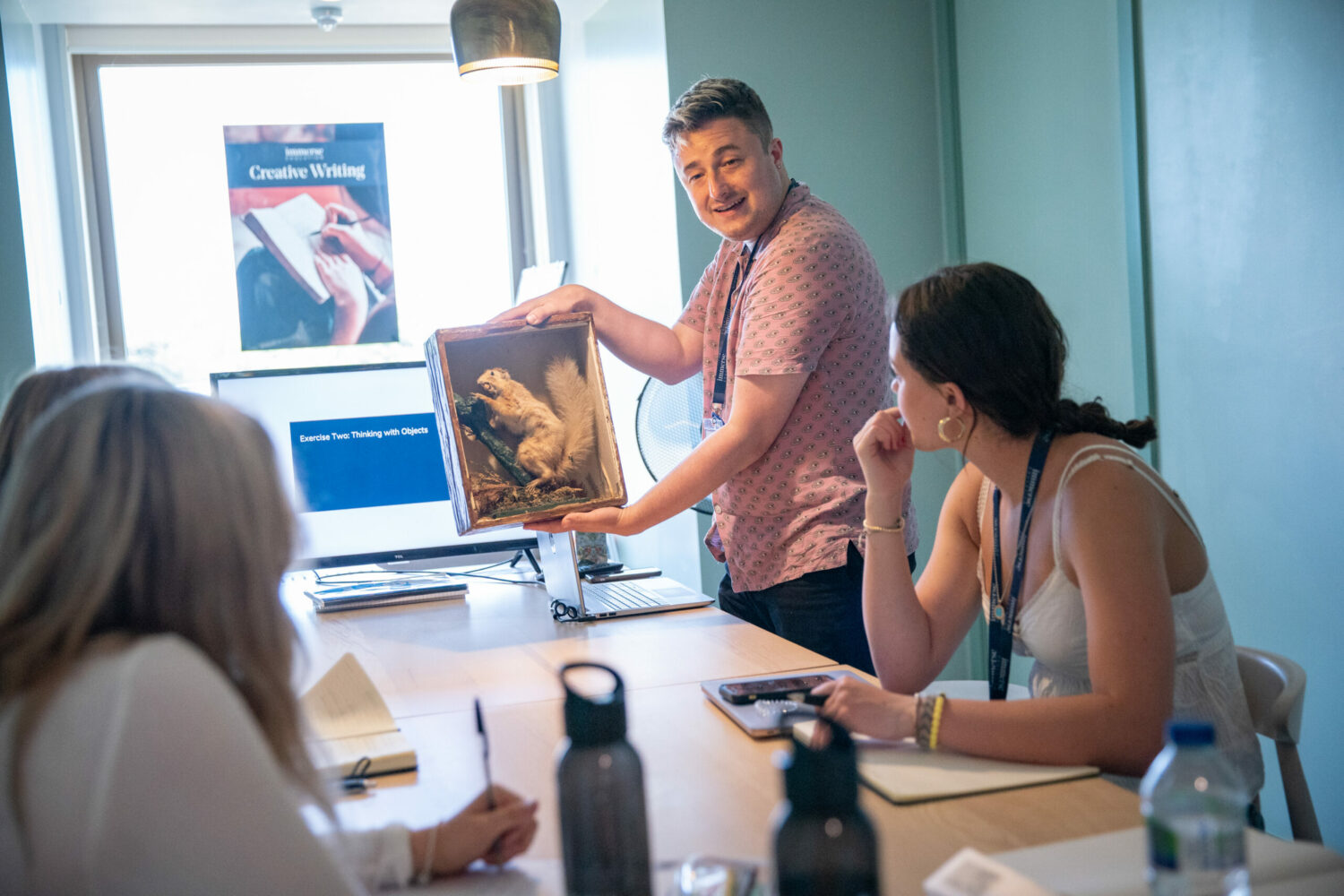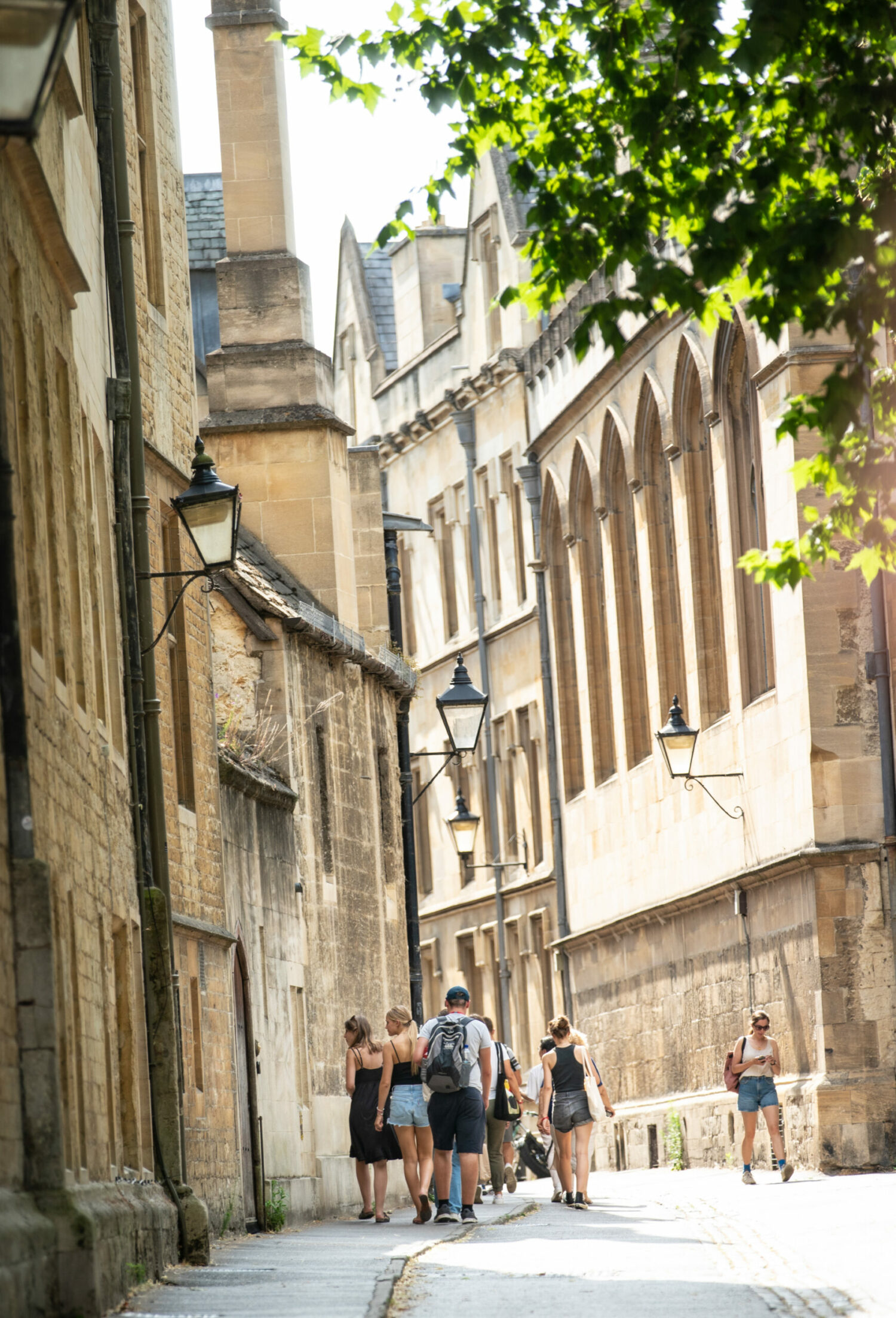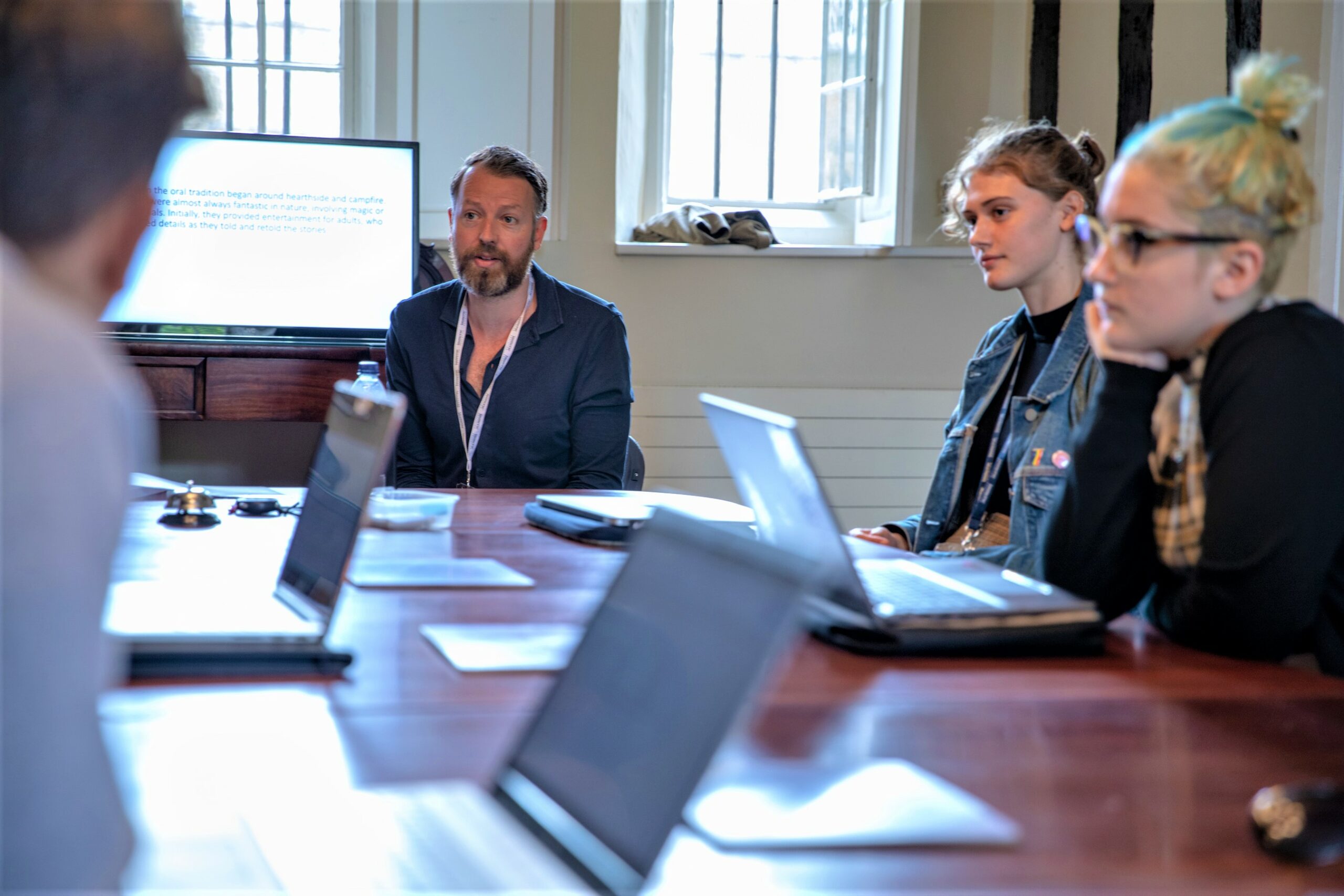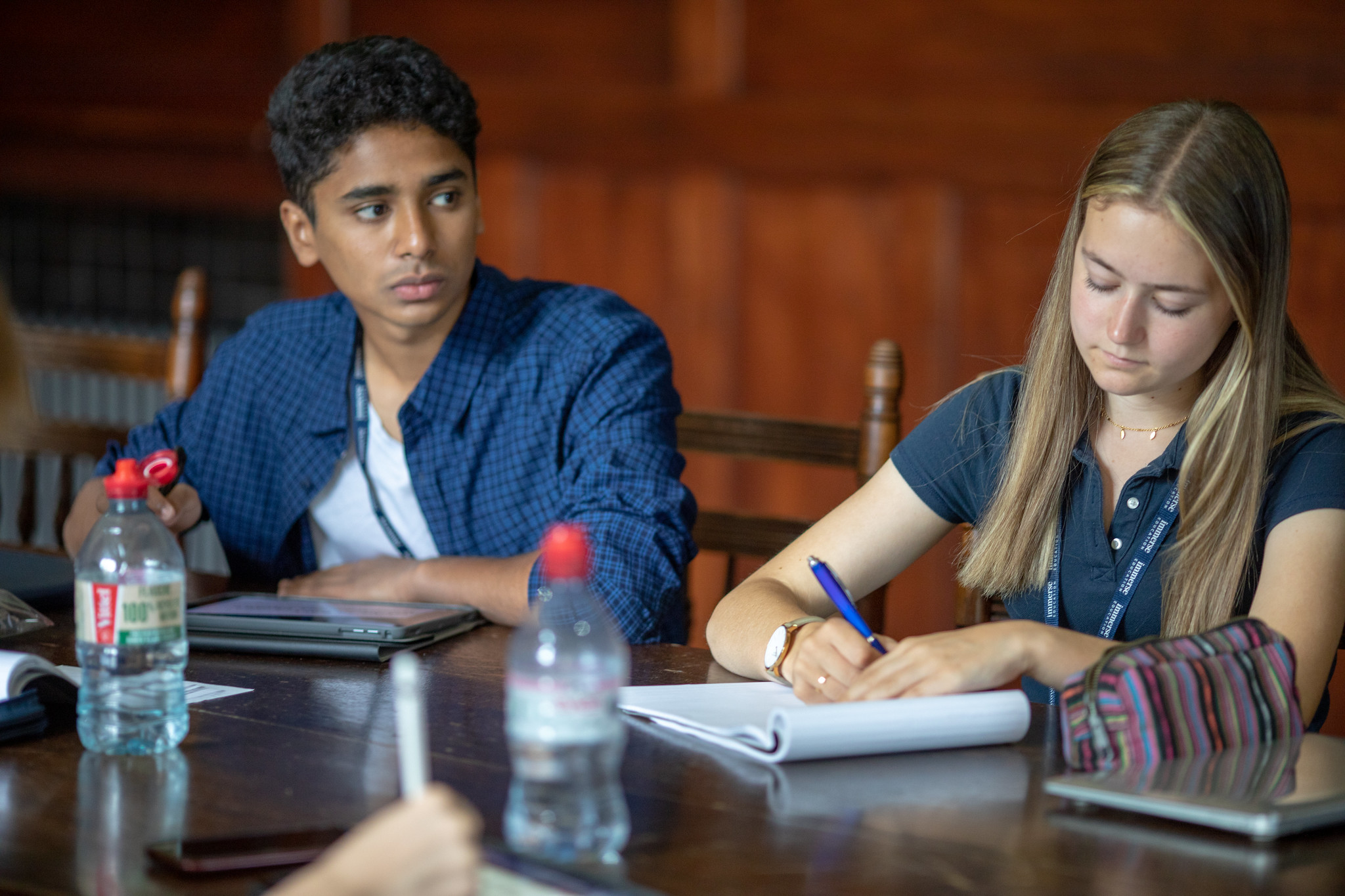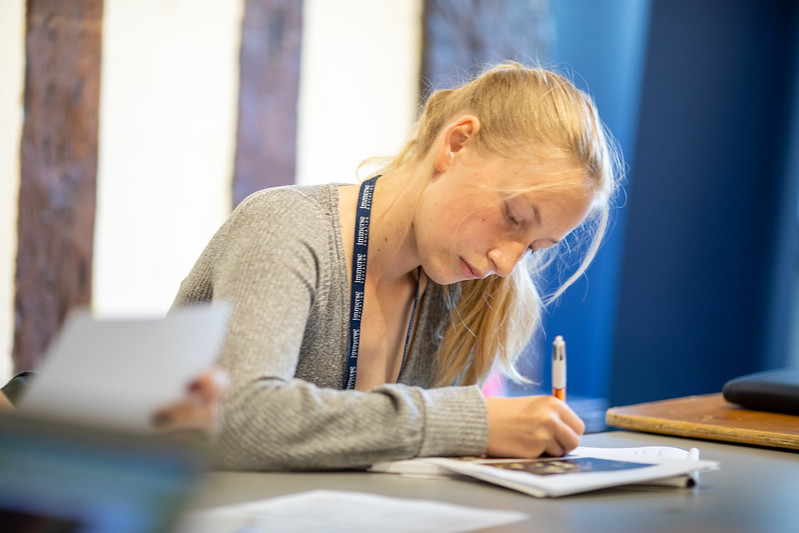Creative Writing Summer School

Unparalleled academic programmes
Creative Writing
Creative Writing
Creative Writing
Creative Writing
Creative Writing
Creative Writing
The Immerse Creative Writing programme has been great. Lesson times are a perfect 2 hours in the morning, 2 hours in the afternoon, with lots of time to go and experience the town and have activities in the evenings.
I’ve really enjoyed being around people who have the same interests as me. Being able to share opinions and listen to feedback has been really valuable.
My tutor has been great. He’s very passionate about writing and he’s very engaging with the class. He listens to all our thoughts and our opinions on everything that we study – he’s been brilliant.
The programme has been a very good opportunity to get a grasp on what university is like – It gives us an opportunity to make new friends, which is good for your social skills, and you get an idea of what university classes might be like.
The curriculum is nothing like I’ve ever seen before, which is great. It’s nothing like what I do at school, which means I have the ability to experiment, and learn new things and along the way just improve my general skills.
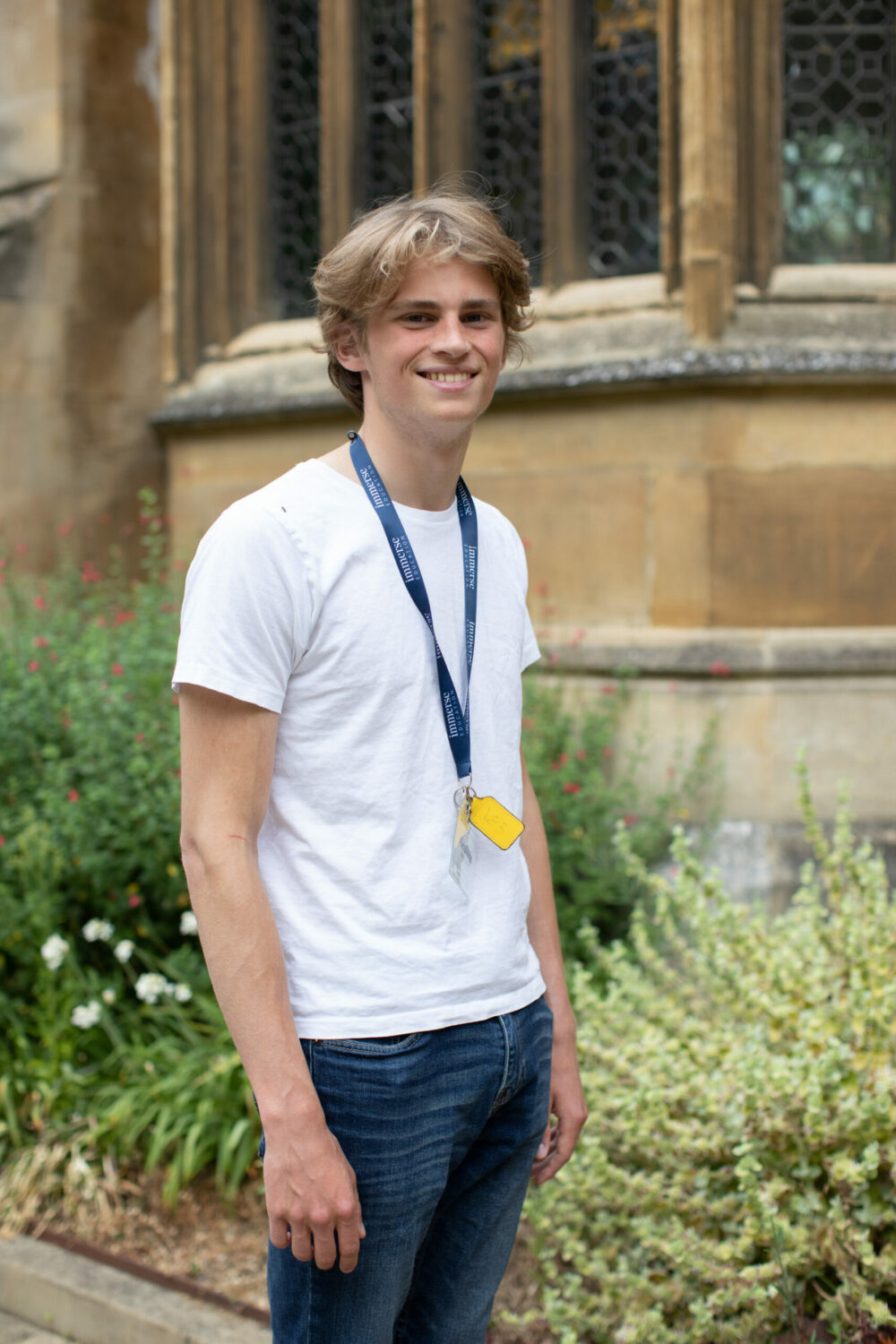

Creative Writing Summer Schools
For centuries, Cambridge has produced some of the world’s most renowned writers, including C.S. Lewis, Douglas Adams, Sylvia Plath, and John Milton. On our summer programme, you’ll have the chance to develop imaginative approaches to writing and to hone your skills in these historical and inspirational surroundings of Cambridge. It’s not difficult to see why the beauty and charm of this historic city continue to capture the imagination of many writers. If you’re interested in improving your Creative Writing skills, you’ve come to the right place.
Frequently Asked Questions
What is Creative Writing?
It’s a form of artistic writing that uses imagery, drama, and narrative to express ideas. Genres in Creative Writing include fiction, poetry, and screenplays. As opposed to more technical forms of writing you see in research papers or news articles.
Why is it important to study creative writing?
It’s important to study creative writing because it enhances your communication skills. When you find the right words to say, your message becomes impactful.
This skill is especially crucial in business. Why? Because the core of creative writing is empathy. When you write poems or stories, it’s about putting yourself in other people’s shoes. What’s going on in their minds? What are they feeling?
Empathy is also centre-stage in business. After all, isn’t entrepreneurship all about solving people’s problems? How can you help people if you don’t understand what they’re going through? And when you understand them, how can you communicate what you do?
Creative Writing helps you express what your brand stands for. And how your products solve problems. Even in non-profit organisations, Creative Writing comes in handy. Because you need support. And the only way to gain that is by sharing your stories and advocacies through words.
So whatever profession or business you enter, the communication skills you develop with Creative Writing are valuable assets.
The US Bureau of Labor Statistics projects a 9% employment growth for writers and authors from 2020 to 2030. Opening up about 15,400 job openings per year.
In the UK, 6 of the Top 10 careers for those who took English as their Major are the following: teaching professionals; marketing professionals; public relations professionals; authors, writers, and translators; human resources and industrial relations officers; and newspaper and periodical journalists and reporters.
Immerse Education offers both online and residential summer courses for Creative Writing. The residential courses are available in the UK in Cambridge and Oxford. Also, outside of the UK in Sydney.
You don’t need prior skills, experience, or learning to take Creative Writing. But having an active interest in the subject is helpful. Your expert creative writing tutor will send you work before your summer school start. This will mean that you and your peers all have knowledge parity when starting your program.
For 13-15 yr. olds:
Blank Page
What’s the most challenging part of the writing process? Starting. Even for experienced writers, staring at a blank page and coming up empty is often daunting. What do you do? In this module, you’ll learn warm-up exercises and quick-fire short assignments. Plus, you’ll discover how to gain inspiration from the work of other writers. These techniques will help you overcome the fear of the blank page.
Character Creation
The best characters come alive beyond the page. So it’s no surprise that creating such memorable characters is a massive challenge even for the best authors. But don’t worry, because you’ll discover character creation techniques in this class, such as creating CVs, family tress, and relationship networks. These will help you identify potential sources of conflict in your characters’ lives.
Plot Mapping
The plot is what happens in a story. In Plot Mapping, you’ll understand the importance of crafting ‘tension points’ and ‘turning points.’ And the creative possibilities of ‘plot twists.” Without these, the plot degrades into a simple sequence of events with no central question that drives your characters forward.
Written Portfolio
By this point, you will have completed a short written piece. What better way to conclude the programme than to present it to the class? You’ll also have the opportunity to receive constructive feedback from your tutor and peers.
For 16-18 yr. olds:
An Introduction To Creative Writing
What are the conventional assumptions of writing in the 21st Century? Let’s challenge that in this introductory module. Here you’ll discuss your expectations of the programme. What do you hope to achieve at the end of it? And you’ll also have the opportunity to discuss the writing methods and routines you prefer.
The best part? You’ll learn how to overcome your fear of a blank page. Then, with the right techniques, you can start writing in a breeze!
The Importance of Character
Do you believe that great characters drive the best stories? Think Sherlock Holmes and Jay Gatsby. In this session, you’ll dive deep into the clichés and tropes of a range of comedic and conflicted characters. Plus, you’ll investigate how characters can shift the tone and plot.
Learning The Industry: The Basics
Great, you now have a finished manuscript. What’s next? Do you know that even the best authors experience setbacks from not knowing how the publishing industry works? You’ll learn about the various publishing options in this module, from competitions, magazines and traditional publishing, to e-books, self-publication and film writing.
Written Portfolio
As you go through the programme, you’ll be writing a portfolio of creative writing or a novella. You’ll have the opportunity to complete your work in this final module. The most important part? Your tutor will give you personal written and verbal feedback to help you become the best writer you can be.
The Creative Writing courses are best for motivated 13-18 yr. old students. Suppose you’re aiming to take English-related courses at the University. In that case, this course will give you an edge over your competition.
Students who want to learn from world-class tutors from the University of Cambridge and Oxford will enjoy this course!



